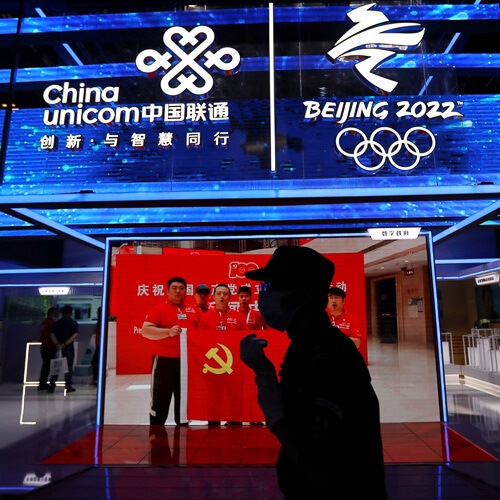East and West living in parallel realities
The US and China are operating from a different set of telecom facts.

Many of us might have forgotten that China Unicom had its US license revoked last week, but those people would not be in China.
China's Ministry of Foreign Affairs, Ministry of Industry and Information Technology (MIIT) and now China Unicom have all stepped up to denounce the ban (see China Unicom finally falls to the FCC with US market ban).
In a social media post Thursday, Unicom complained that the FCC decision to cancel its license was made "without listing specific facts and without due process."
It's not clear why the company waited for a week to break its silence. It may be it was waiting for the MIIT, the industry regulator, to have its say – which if true doesn't help Unicom's case that it is independent of the Chinese government.
Figure 1:  Walk on by: The US and China are operating from a different set of telecom facts.
Walk on by: The US and China are operating from a different set of telecom facts.
(Source: Reuters/Alamy Stock Photo)
As reported by the China Daily also on Thursday, the MIIT "urged the FCC to withdraw its decision [and] stop the wrongful practice of over-generalizing the concept of national security and politicizing economic issues."
Lack of trust
None of these little bursts of dissatisfaction come as a surprise but they do highlight that the two sides are operating from a completely different set of facts.
What Unicom describes as a lack of due process was in fact a process that took the best part of two years.
The FCC was obliged to determine whether China Unicom Americas (CUA) was susceptible to the influence of the Chinese government. Unicom claimed there was "nothing to which to respond" and made a largely technical argument about whether the FCC was following the right procedures.
In its decision the FCC rejected the assertion that CUA, a subsidiary of Hong Kong-listed China Unicom Ltd, was not controlled by China Unicom Group, a state enterprise owned by the Chinese government.
It said the evidence "overwhelmingly shows that CUA is not separate and independent from its parent entities" and was therefore vulnerable to exploitation or influence by the parent government.
It noted that in a 2017 filing with the FCC, CUA itself stated that the Chinese government "continues to maintain ownership and control over CUA and will continue to do so."
Want to know more about security? Check out our dedicated security channel here on
Light Reading.
Additionally, the passage of a series of new laws by Beijing, such as the 2017 Cybersecurity Law, and the 2017 National Intelligence Law, had raised "significant national security risks."
Finally, the FCC described Unicom's conduct before the commission and Congress as lacking "candor, trustworthiness, and reliability."
The reason for spelling out some of these details here is that, for all their indignation, none of the offended Chinese agencies has done so. If this is such a travesty, why not lay the facts out for everyone to judge?
It may be unfortunate that Unicom and the other operators are now declared to be untrusted in the US because of their close government links – but that hardly differs at all from the Beijing view.
No part of China's infrastructure – telecom, ports, power grid, highways, airports, railways and the rest – is open even to domestic private companies, let alone foreigners. That is zero trust. You certainly don't see any foreign companies invited to make submissions about whether they should be allowed in the market or not.
Instead of grandstanding, how about acknowledging each others' boundaries and moving on to areas where they can cooperate.
But with the two parties living in parallel realities, it is hard to see how they can make any progress at all.
Related posts:
— Robert Clark, contributing editor, special to Light Reading
Read more about:
AsiaAbout the Author(s)
You May Also Like












